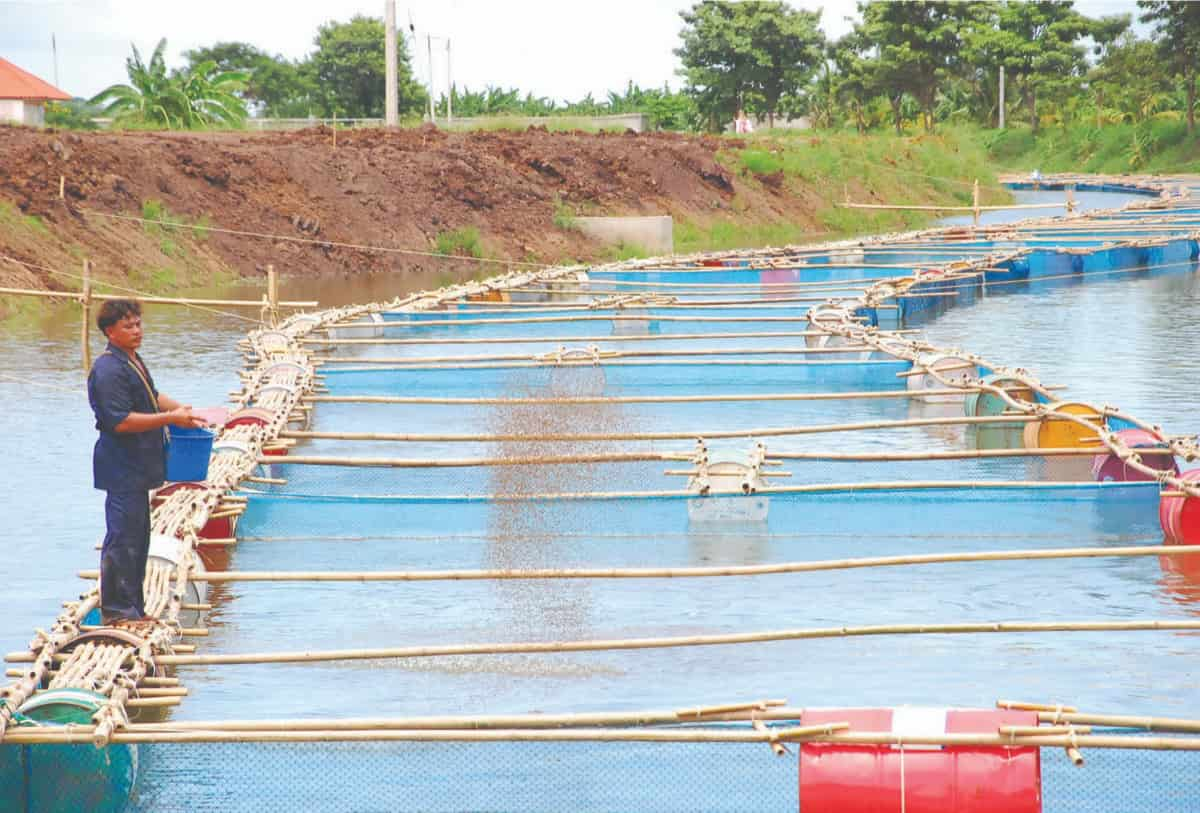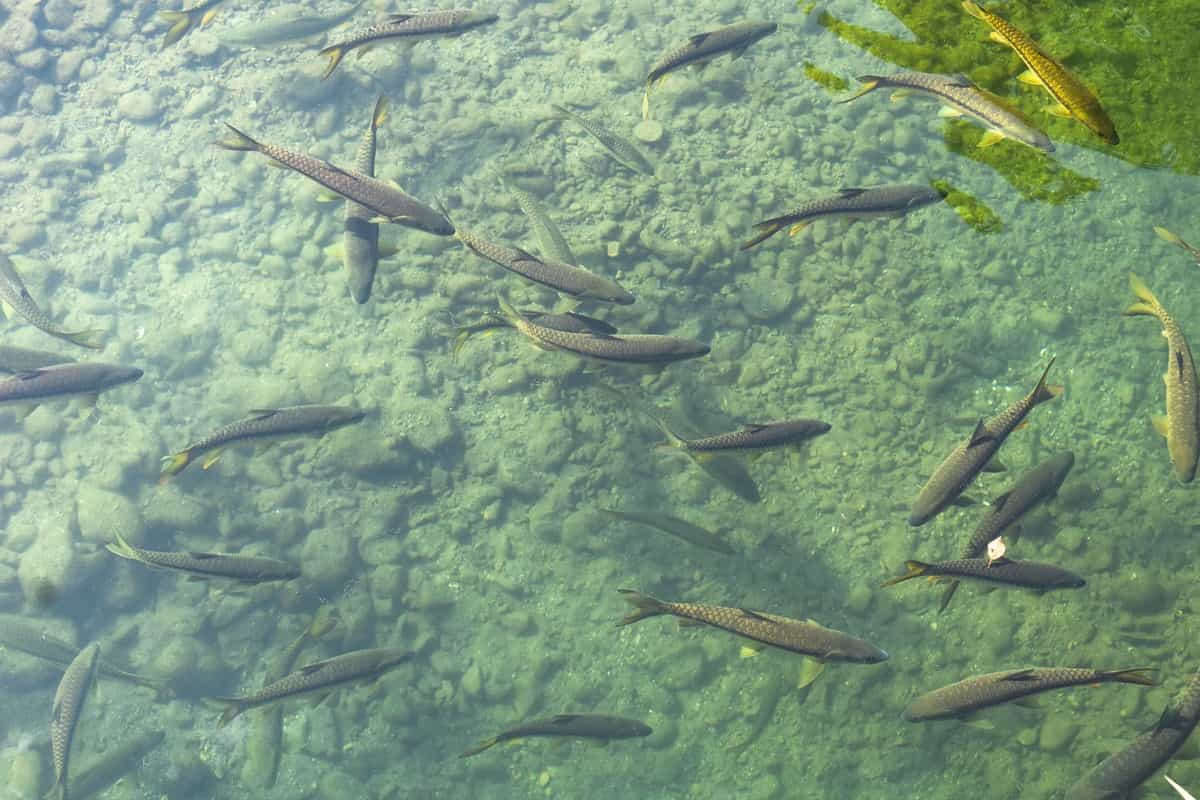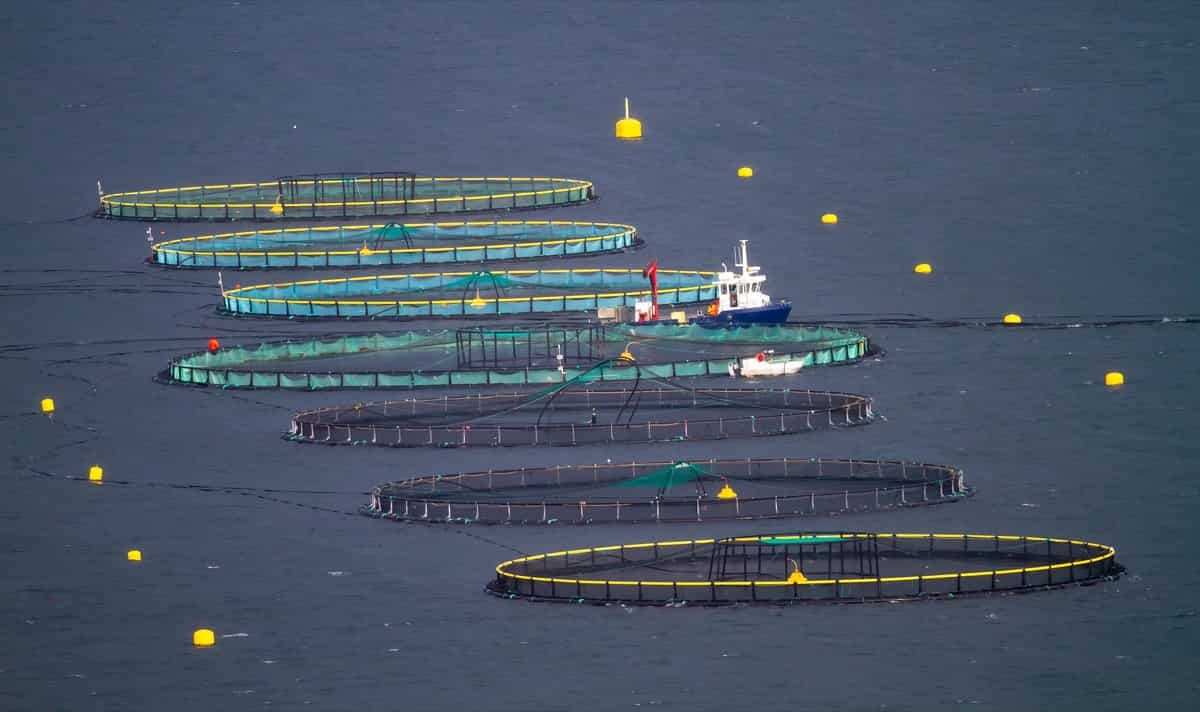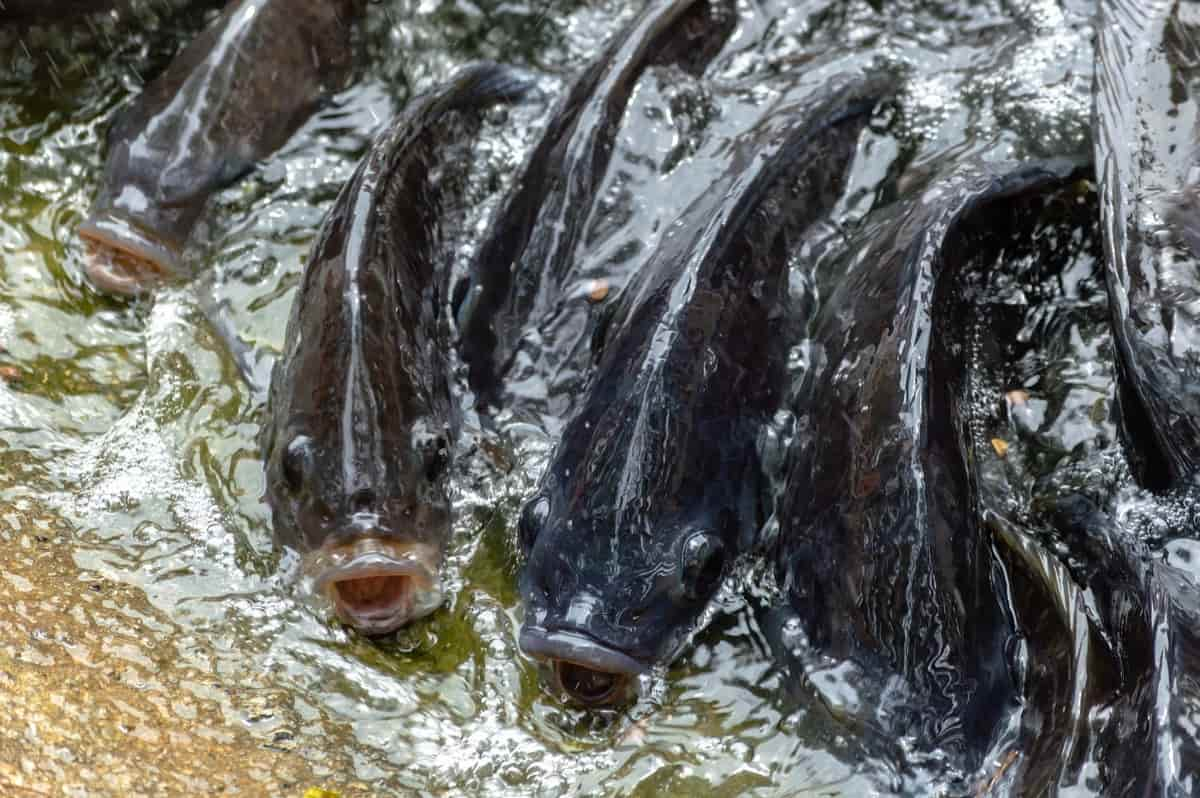Fish farming has been a major industry in Israel for over two decades and is currently the country’s largest agricultural export. Fish farming in Israel is an important industry that provides food for humans and animals and employment for many people.

How to start fish farming in Israel
What is fish farming?
Fish farming is an agricultural process where fish are raised in tanks or enclosures. Fish farming can be used to produce a variety of foods, including fishmeal, fish oil, and seafood products. Today, Israel is one of the world’s leading fish farmers. Israeli fish farms are also major producers of fishmeal and fish oil. Israeli fish farms contribute significant value to the economy by generating jobs and contributing to the country’s food security.
How is fish farming done in Israel?
Fish farming in Israel is done extensively, with several different types of fish being farmed. As a result, aquaculture has become an important industry in Israel, and the country has developed a strong reputation for its high-quality products. Israeli fish farms use a variety of methods to raise their animals. One common method is recirculating water systems that allow the fish to swim in freshwater all the time. This system ensures that the fish receive a balanced diet and are free from diseases.
Fish farms also use artificial lighting to simulate natural sunlight and prevent algae growth. Israel’s aquaculture industry is booming, and companies are constantly looking for new ways to increase production levels. The country’s skilled agricultural workforce is well-equipped to handle this production. As a result, Israeli fish farms have maintained high production standards despite increasing competition from countries like China and Thailand.
In case you missed it: Rupchanda Fish Farming in India: How to Start from Scratch, Set up, and Management

Economic factors affecting fish farming in Israel
- Water resources: Israel has limited freshwater available, which is why fish farming is concentrated in the coastal plain. Coastal aquifers are being depleted at an alarming rate, and new sources of water have to be found if fish farming is to continue expanding.
- Subsidies: The government provides significant subsidies to farmers who grow aquatic animals. These subsidies play a significant role in encouraging fish farming in Israel. In addition, there are also environmental and animal welfare incentives offered by the government.
- Regulations: Regulations regarding fish farming can be extremely restrictive. This is partly because the industry is still relatively new, and regulators want to ensure that farms are operated safely and responsibly.
Fish species available in Israel
The main fish used for farming in Israel are tilapia, catfish, carp, and goldfish. Other fish species are Garra nana, Orontes minnow, Mediterranean killifish, Angora loach, Oreochromis aureus, Acanthobrama telavivensis, Tristramella sacra, Acanthobrama hulensis, Astatotilapia flaviijosephi, Garra ghorensis, Oxynoemacheilus leontinae, Oxynoemacheilus galilaeus, Pseudophoxinus drusensis, Jordan himri, Acanthobrama lissneri, Capoeta damascina, Acanthobrama terraesanctae, Tristramella simonis, Iridescent toothcarp, Jordan barbel, Oxynoemacheilus insignis, Nile tilapia, Mango tilapia, Mirogrex terraesanctae, and Garra jordanica.
Freshwater fish farming in Israel
- The Israeli freshwater fish farming sector is divided into two main types: open-water (or brackish) farming and closed-containment systems. Open-water farming is generally more traditional and involves raising fish in ponds or lakes. Closed-containment systems are newer and involve raising fish in tanks wholly enclosed by barriers such as plastic netting or metal bars.
- The main species raised in Israel are tilapia, largemouth bass, catfish, silver carp, carp, and common goldfish. Tilapia is Israel’s most popular fish species, accounting for almost 60 percent of production. Other popular species include largemouth bass (25 percent), catfish (10 percent), carp (5 percent), and common goldfish (5 percent).
- Israeli freshwater fish farmers face several challenges that they have had to overcome to stay competitive in the global market. The main challenges include high feed prices and low yields due to insufficient investment in technology over the years.
In case you missed it: How to Start Fish Farming in the Netherlands: Business Plan, RAS, Breeds, Set up Cost, Profit, and Management

Fish farming importance in Israel
Israel is one of the world’s leading carp producers, with exports accounting for more than 50% of the total production. This high production level is thanks to the country’s favorable climate and abundant supply of water. Tilapia farming is also important, with exports increasing by around 15% yearly. Israeli fish farms are subject to strict regulations designed to protect the environment and ensure that the seafood products’ quality is top-notch.
In addition, Israel has developed innovative aquaculture techniques that enable it to produce high-quality fish at lower costs than other countries. Fish farming is an important sector of the Israeli agricultural economy. The industry employs more than 14,000 people and produces more than 2 million metric tons of fish annually. Fish farming in Israel has many benefits, including providing a valuable food source, contributing to the country’s food security, and creating jobs.
Biofloc fish farming in Israel
Biofloc technology is increasingly used in fish farming worldwide due to its environmental benefits. Israel is no exception, with some of the most advanced biofloc farms in the world. One such method is biofloc technology uses floating plants to clean up aquatic habitats. Biofloc farms are typically composed of three layers: a plastic film that covers the plants, an underlying layer of compost or other organic material, and a water-proof top layer.
When nutrients from the surrounding water seep through the film and into the compost substrate, they break down into plant food and oxygenate the water. This process creates an ecological “crowd control” effect, as algae grow less rapidly than bacteria and help preserve native ecosystems near the farm.
Biofloc farming has many other benefits as well. For one, it uses much less freshwater than traditional aquaculture techniques. And because biofloc systems can be built almost anywhere there is access to water (including desert areas), they are ideal for countries with limited freshwater resources.
In case you missed it: A Guide to Understand RAS Fish Farming: Check How this Helps Beginners

How to raise fish in Israel?
The first step is to choose where your farm will be located. Before doing anything else, it is important to ensure that your chosen area has access to clean water and adequate sunlight. Next, take into account the climate conditions in your area. Fish farms require high humidity and temperature control levels, so it is important to choose an area that can provide both necessities. Finally, ensure no major environmental hazards are present near your chosen spot.
Once you have found a suitable spot, begin preparing the soil by adding organic matter and composting materials. Next, add water until it reaches the desired level, and begin planting your seeds! It is important to space your plants evenly so that they receive plenty of light and air circulation. When your plants have grown enough, transplant them into their new fish tanks! Make sure to maintain high levels of humidity and temperature.
Key rules to start fish farming in Israel
- Networking: First, it is important to network with other fish farmers in your area. This can be done through regional or national organizations, trade shows, or even talking to other local fish market growers.
- Research: Secondly, do your research before starting fish farming. This includes understanding the different types of fish and their requirements for aquaculture and reading up on potential farming methods.
- Environmental Considerations: Thirdly, be mindful of the environmental impact of your farm operations. This includes monitoring water quality, minimizing waste output, and taking measures to offset any negative impacts on wildlife.
Site selection for fish farming in Israel
- There are many different types of land available for fish farming in Israel. Still, a few important things to consider when choosing a site are climate, soil quality, and water availability.
- Soil quality is important for fish farming because good soil has aeration capabilities that allow nutrients to be retained while preventing weeds from growing.
- Water availability is another key factor when selecting a site for fish farming in Israel. Fish farms need access to fresh water at all times, so selecting a site with plenty of reliable water sources is important.
In case you missed it: Fish Farming in New Zealand: How to Start, Breeds, Check How this Guide Helps Beginners

Feeding for fish farming in Israel
There are various feed options for fish farming in Israel. The most common is a fishmeal-based diet supplemented with vegetable proteins such as soybean meal or algae. Another common feed option is a pelletized diet based on fish and shrimp meals, with some added vitamins and minerals. Both types of diets can be purchased commercially or made at home using ingredients that are readily available in Israel.
The water quality requirements for fish farming in Israel are similar to those for other livestock farms. The water must be clean and free from excess nutrients and pollutants, and the temperature must be stable and suitable for aquatic life. Fish farmers use various methods to monitor and adjust their water conditions, including rain gauges, pH meters, temperature sensors, and flowmeters.
Steps to start a fish farming business plan in Israel
- Research the fish farming industry in Israel and abroad.
- Select the right type of fish, and there are many types of fish that can be farmed in Israel, so it is important to choose the right species and variety for your farm.
- Determine the type of fish that can be farmed successfully in your climate and environment.
- Set up your farm, which involves purchasing land, building structures, and stocking the tanks with fish.
- Operate your farm and keep track of daily operations such as feeding and watering the fish and monitoring environmental conditions.
- Create a business plan detailing how to market your product, obtain financing, and enter supplier agreements.
- Select an appropriate site for fish farming, build infrastructure (ponds, cages, feeders), and establish production standards for your fish species.
- Train staff to manage the farm operation and monitor individual fish populations.
- Market your products locally and export to foreign markets if feasible.
- Evaluate results and, after a few years of operation, review how things are going and make any necessary changes or adjustments to ensure continued success.
Caring & other management tips for fish farming in Israel
Fish farming in Israel is a burgeoning industry benefiting from the country’s temperate climate and ample freshwater resources. Unlike other types of agriculture, fish farming relies on natural reproduction to sustain populations, which makes it a more sustainable way to produce food. Several factors contribute to the success of fish farming in Israel, including good water temperature and pH levels, a wide range of feed options, and experienced fish farmers who can provide operational guidance.
There are several ways to manage fish farming in Israel. One common method is to use mesh nets suspended from the water’s surface. This system allows farmers to access all areas of the pond or lake where they grow their fish, which helps them minimize losses due to disease or predation. Another approach is to build artificial ponds filled with gravel or sand. These ponds offer producers greater flexibility since they can be expanded or contracted as needed. In addition to good management practices, Israeli fish farmers rely on various feed additives and antibiotics to keep their livestock healthy and productive.
Fish farming problems in Israel
- Fish farming in Israel has come under scrutiny in recent years due to this industry’s negative environmental and public health impacts. Fish farming can cause water pollution, habitat destruction, algal blooms, and detrimental interactions with native fish populations.
- The Israeli government has responded to these concerns by implementing several strict regulations regarding fish farming. These regulations have decreased the amount of waste produced by the industry, but they have also resulted in increased costs for producers.
- In addition to the environmental issues, fish farming has been criticized for its negative impact on workers’ rights. Many workers are employed in low-paid jobs performing dangerous tasks such as navigating nets and cleaning cages.
In case you missed it: How to Start Rabbit Farming in Australia: Key Rules, Business Plan, Breeds, Cost and Profit

Fish farming states in Israel
There are a total of nine fish-farming states in Israel. They are Ashdod, Beersheba, Haifa, Tel Aviv-Jaffa, Eilat, Rishon LeZion, Nazareth Illit, and Modi’in Illit.
Fish farming challenges in Israel
The challenges of fish farming in Israel include the lack of freshwater resources, pests and diseases, and climate change. Fish farming in Israel is a growing industry but faces many challenges. The country has warm water and good sunlight, but the water is saline, and the soil is not very fertile. Fish require a lot of food and water, so farms must put up huge tanks that can hold hundreds of thousands of fish. The farms also need to deal with waste pollution and fish that escape into the environment.
Fish farming set up cost in Israel
To set up a fish farm in Israel, you must get government approval and investment from private investors. The typical cost of setting up a fish farm in Israel is around $10 million. The initial investment will require you to purchase land and build tanks, cages, and other infrastructure. Once the farm is up and running, you must maintain it by feeding the animals with pellets and water.
Conclusion
Fish farming in Israel is a lucrative business, and it is growing rapidly thanks to rising consumer demand for seafood products worldwide. Fish farming employs environmentally friendly methods and technologies, which allows for sustainable development. The fish raised in Israeli farms are of high quality and have a reputation for being among the most delicious in the world.
- Types of Pesticides Used in Agriculture: A Beginner’s Guide
- Economical Aquaculture: A Guide to Low-Budget Fish Farming
- 15 Common Planting Errors That Can Doom Your Fruit Trees
- How to Make Houseplants Bushy: Effective Tips and Ideas
- Innovative Strategies for Boosting Coconut Pollination and Yield
- Pollination Strategies for Maximum Pumpkin Yield
- The Complete Guide to Chicken Fattening: Strategies for Maximum Growth
- Natural Solutions for Tulip Problems: 100% Effective Remedies for Leaf and Bulb-Related Issues
- Revolutionizing Citrus Preservation: Towards a Healthier, Greener Future
- Natural Solutions for Peony Leaf and Flower Problems: 100% Effective Remedies
- Maximizing Profits with Avocado Contract Farming in India: A Comprehensive Guide
- Natural Solutions for Hydrangea Problems: 100% Effective Remedies for Leaf and Flowers
- The Ultimate Guide to Choosing the Perfect Foliage Friend: Bringing Life Indoors
- From Sunlight to Sustainability: 15 Ways to Use Solar Technology in Agriculture
- The Ultimate Guide to Dong Tao Chicken: Exploring from History to Raising
- The Eco-Friendly Makeover: How to Convert Your Unused Swimming Pool into a Fish Pond
- Mastering the Art of Delaware Chicken Farming: Essentials for Healthy Backyard Flocks
- 20 Best Homemade Fertilizers for Money Plant: DIY Recipes and Application Methods
- How to Craft a Comprehensive Free-Range Chicken Farming Business Plan
- Brighten Your Flock: Raising Easter Egger Chickens for Beauty and Bounty
- How to Optimize Your Poultry Egg Farm Business Plan with These Strategies
- Subsidy for Spirulina Cultivation: How Indian Government Schemes Encouraging Spirulina Farmers
- Ultimate Guide to Raising Dominique Chickens: Breeding, Feeding, Egg-Production, and Care
- Mastering the Art of Raising Jersey Giant Chickens: Care, Feeding, and More
- Ultimate Guide to Raising Legbar Chickens: Breeding, Farming Practices, Diet, Egg-Production
- How to Raise Welsummer Chickens: A Comprehensive Guide for Beginners
- How to Protect Indoor Plants in Winter: A Comprehensive Guide
- Ultimate Guide to Grow Bag Gardening: Tips, Tricks, and Planting Ideas for Urban Gardeners
- Guide to Lotus Cultivation: How to Propagate, Plant, Grow, Care, Cost, and Profit
- Agriculture Drone Subsidy Scheme: Government Kisan Subsidy, License, and How to Apply Online
- Ultimate Guide to Raising Araucana Chickens: Breed Profile, Farming Economics, Diet, and Care
- Bringing Hydroponics to Classroom: Importance, Benefits of Learning for School Students
- Ultimate Guide to Raising Polish Chickens: Breed Profile, Farming Economics, Diet, and Care
- Ultimate Guide to Raising Australorp Chickens: Profile, Farming Economics, Egg Production, Diet, and Care
- Silkie Chicken Farming: Raising Practices, Varieties, Egg Production, Diet, and Care
- Sussex Chicken Farming: Raising Practices, Varieties, Egg Production, Diet and Care
I have three years experience working in a catfish farm (enclosed).
I want to venture into the business on my own and relationship with experienced catfish farmer will be invaluable to me.
Though i won’t start hatching initially however, from pond design, stocking, feeding, FCR to pond/feed treatment deserves an expertise as such from Israel only if i can have an ear to talk to and voice to add to my ideas.
Looking forward to hearing positively from you.
Regards!